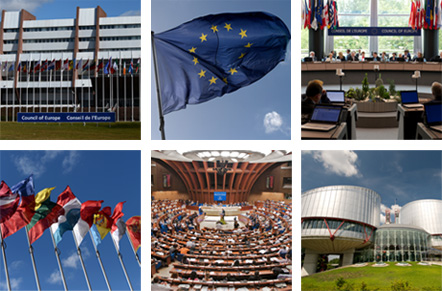According to the new report by European Commission against Racism and Intolerance (ECRI) published today, San-Marino has made progress on access to naturalisation, criminalising discrimination on the basis of gender identity, and on data collection. However, San Marino still has no criminal legislation prohibiting discrimination on the grounds of language or colour, lacks an independent anti-discrimination body. Non-nationals residing in the country do not have voting or eligibility rights in local elections; long-term Italian residents in San Marino who do not wish to renounce their Italian nationality cannot have access to San Marinese citizenship; and there is no any form of legal recognition for same-sex couples. ECRI recommends, as a matter of priority, granting voting rights in local elections for foreign residents, and start adopting legislation governing same-sex relationships.
Spain should create a strong equality body, adopt new comprehensive anti-discrimination legislation and improve the education of Roma and migrant children, says the ECRI monitoring report. While progress has been achieved in re-housing and education of Roma, only 45% of Roma children complete compulsory education and the rehousing measures have contributed to residential and school segregation. Authorities should step up efforts to help migrants find employment and to address the high drop-out rates of non-EU migrant children. Hate speech, in particular against Muslims, Roma and LGTB persons, has sharply risen on the Internet and social media, and not enough is done to address it. The report welcomes the general openness towards LGBT persons in Spain, improvements in recording and fighting hate crimes, including the dissolution of two racist organisations, praises the work of assistance centres for racial discrimination victims, but deplores the lack of independence and inactivity of the current equality body.
Racist and xenophobic hate speech on the rise in Sweden, despite considerable preventive efforts, ECRI says. Positive developments recorded in the country include state support to combating racism and xenophobia, to integrating the extraordinary high number of refugees who arrived in 2015 to facilitate their access to the labour market and housing. However, some legal deficiencies remain: there is still no prohibition of the public denial, trivialization, justification or condoning of genocide and crimes against humanity; the creation and leadership of groups promoting racism is not criminalised; discrimination on the ground of language is not spelled out in the law; and there is no legislation in force to withdraw public financing from parties promoting racism and disband such organisations. Racist and xenophobic hate speech has been on the rise, the main target groups being migrants, Muslims, Black persons and Roma. The priority recommendations by ECRI to the Swedish authorities include vesting the Ombudsman with adequate powers and expertise to investigate discrimination by all public authorities, including law enforcement agencies, and strengthening the introduction programme for refugees to help them to find jobs.
In addition to the three country reports, conclusions on the implementation of priority recommendations given two years ago to Greece and Norway were published.



